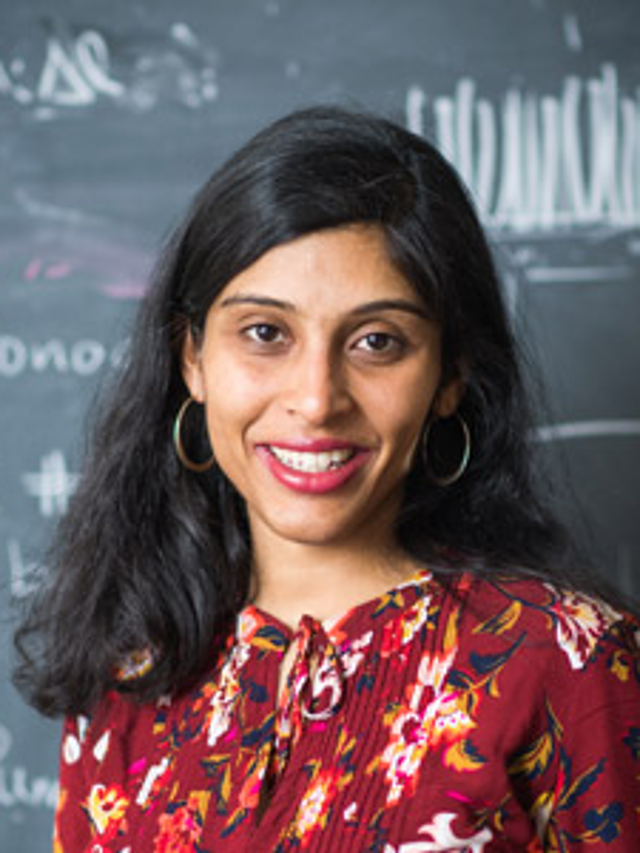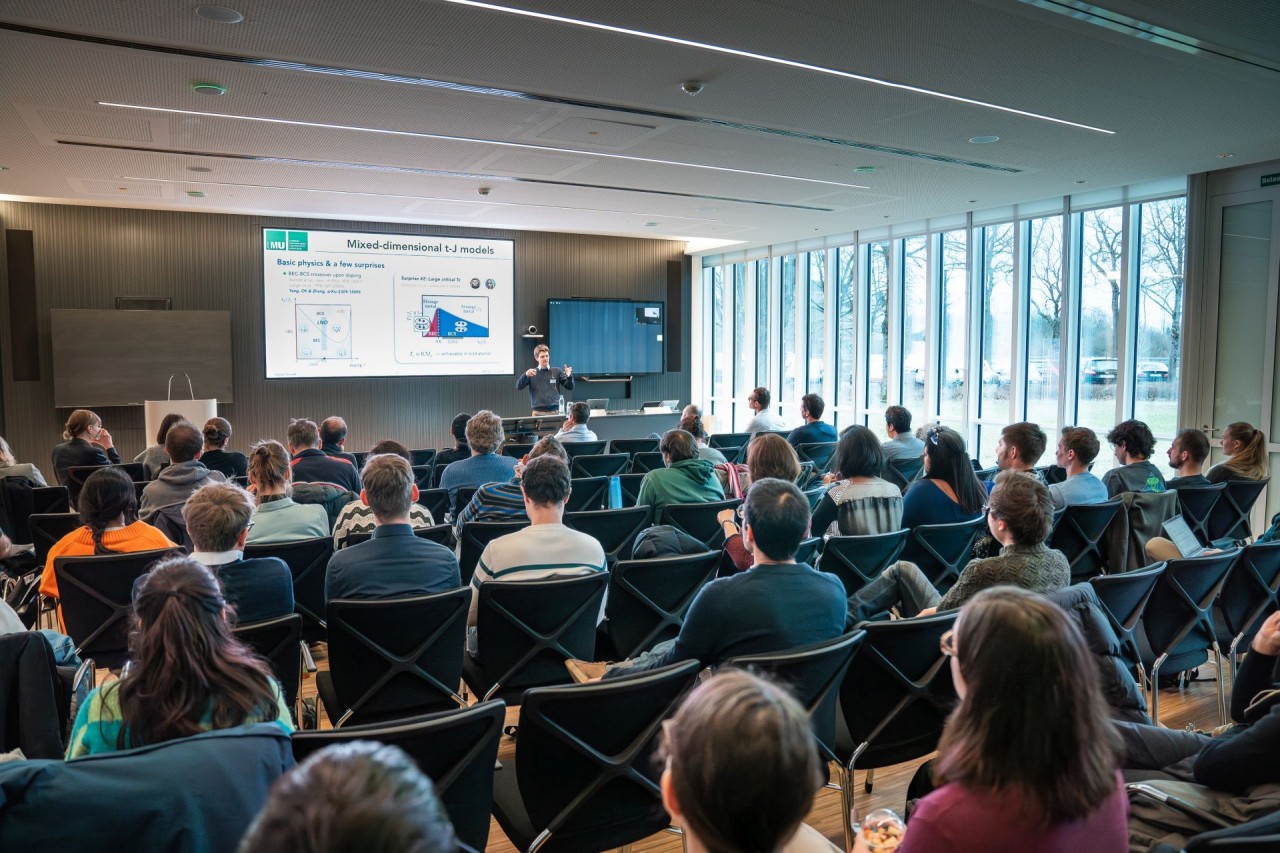14 January 2025
from 14:00
to 16:00
MCQST Colloquium | Anushya Chandran (Boston University, USA)
Address / Location
MPI of Quantum Optics | Herbert Walther Lecture Hall
Hans-Kopferman-Straße 1
85748
Garching
Show Map
Hide Map
The MCQST Colloquium Series features interdisciplinary talks given by visiting international speakers. The monthly colloquium covers topics spanning all
MCQST research units and will be broadcast live via Zoom for audiences worldwide. The main goal of the series is to create the framework for idea exchange, to strengthen links with QST leading groups worldwide, as well as to act as an integral part of the local educational environment.
MCQST Colloquium: Anushya Chandran
We are excited to invite you to the colloquium talk by Anushya Chandran (Boston University, USA).
Agenda
14:00 | Teaser talk by Anton Romen (TUM) on "Fractionalized Prethermalization in the One-Dimensional Hubbard Model"
14:15 | Coffee break
14:30 | Colloquium talk by Anushya Chandran on “Non-reciprocity in near-term quantum platforms”
Non-reciprocity in near-term quantum platforms
Reciprocity relates cause and effect at two points in a system. In a reciprocal system, a disturbance at A is felt at B with the same intensity as a disturbance at B would be felt at A. Somewhat surprisingly, this innocuous relation has far-reaching consequences: for example, relations between transport coefficients.
Breaking reciprocity breaks these relations and opens up a world of new steady-state behaviors, such as macroscopic osillations and persistent currents. Controlling non-reciprocal effects provides a short-term goal for quantum simulators in which non-reciprocity can be readily achieved using drives and dissipation, and an intriguing route to engineering devices, such as circulators and isolators, needed for future quantum technologies.
I will describe how to use non-reciprocal responses of band structures to achieve useful non-reciprocal effects in qubit-cavity platforms. We will obtain topological photon pumps, topologically protected circulating photons and ways to 'boost' non-classical cavity states to larger photon number. I will conclude with a status update on ongoing experimental efforts based on our approach in superconducting circuits.
About Anushya Chandran

Anushya Chandran is an Associate Professor of Physics at Boston University, specializing in quantum many-body systems and non-equilibrium phenomena. After earning her B.Tech from IIT Madras and Ph.D. from Princeton, she conducted postdoctoral research at the Perimeter Institute. Her work focuses on strongly correlated phases, topological order, entanglement, and many-body localization. Recognized with the Sloan Fellowship and NSF CAREER Award, she has published extensively on quantum dynamics.
